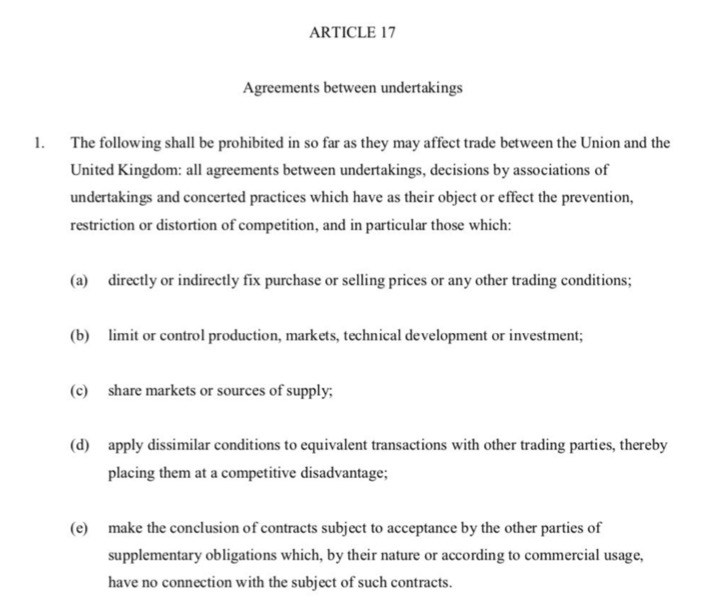 There’s been a vast amount of foolishness in the discussion about this.
There’s been a vast amount of foolishness in the discussion about this.
Labour lost for two main reasons:
- Their base was split by Brexit, and in a real way, no “positioning” could avoid this.
- There was a vast propaganda campaign against Corbyn, in particular, and Labour, in general.
What urban liberals don’t seem to understand is that there was a genuine split in traditional Labour voters over Brexit. Progressives in London were Remain; working and middle class voters in Labour’s northern strongholds were for Leave.
There was no way to split the difference, though Labour tried. Going Leave alienates London voters and gives the LibDems a chance to eat Labour’s lunch in greater London. Going Remain means losing the northern strongholds.
In 2017, Corbyn went for “We’ll respect the vote.” He did better doing that than he did this year with “The People’s Vote” (basically, a redo, based on a a negotiated deal).
But when you look at the ridings Labour lost, they include a lot of the Northern bastions. Places Labour hasn’t lost in decades. What you see is that the Brexit party (which ran in Labour-leaning ridings, but not Conservative ones) made the margin of difference, and often more than it.
By going “People’s Vote” Labour lost a big chunk of the north. It’s just that simple. BUT there was no good answer, going “Leave” would have lost a lot of other seats.
This is a problem for Labour which too many commenters simply refuse to actually admit exists. Perhaps if Corbyn had picked a position and stuck to it, Labour would have done better (but if so, that means having stuck to “respect the referendum”, which progressives screamed at him not to do), but Labour’s voters were genuinely split.
The next issue is media bias. There is simply no question that the media has been terribly biased, particularly against Corbyn, but against Labour and for Tories.
This chart gives the picture on Corbyn, but it’s worse than this, because the media lied, a lot. Over 75 percent of the time, the media has lied about Corbyn’s actual policy positions and history. So people who hate Corbyn (and they do) hate a person who exists only in a propaganda delirium. Given that Corbyn is basically a kindly, social democratic grandfather (and if you watch him interact with people, he is actually sweet and kind), this means they can mischaracterize anyone, though I do agree he should have fought back harder. Not sure it would have mattered.
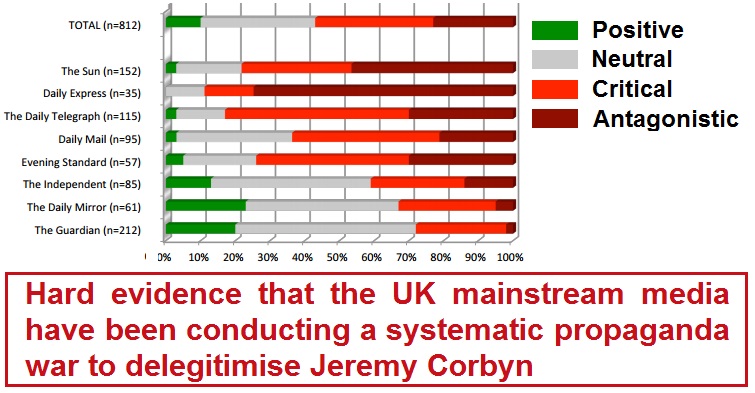
Note that even the supposedly left-wing Guardian was more anti-Corbyn than pro. (Something I’ve said for a long time. When the intelligence services forced the Guardian’s editors to smash their own computers because of Wikileaks, it appears to have permanently broken them. The Guardian now knows to bow.)
As for Labour, well here you go:
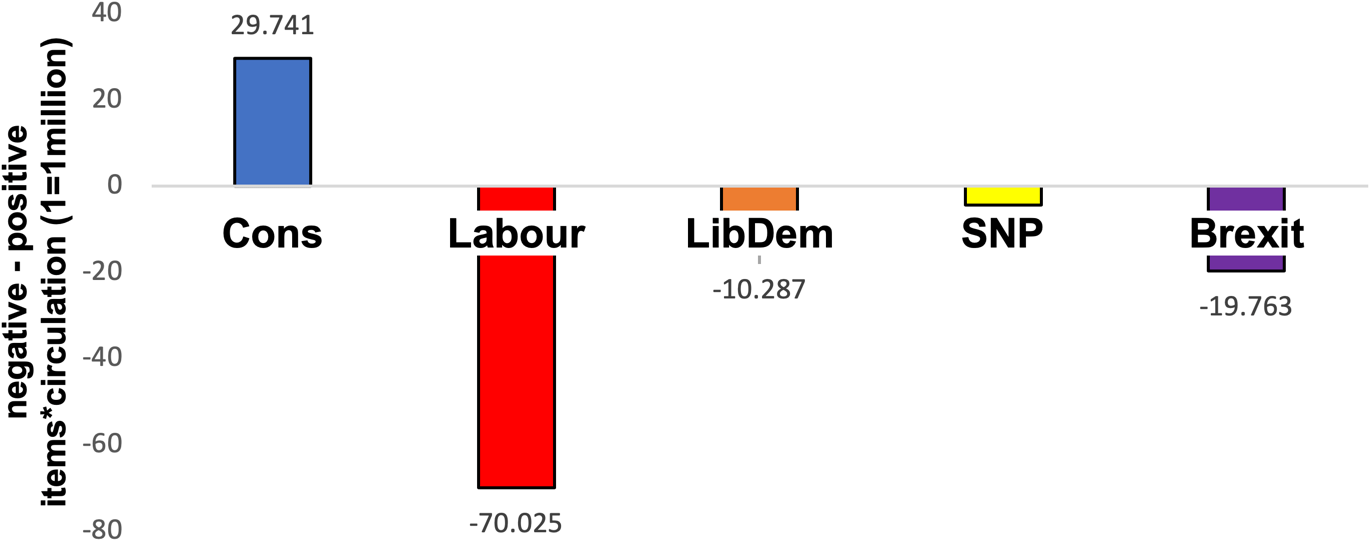
People tend to overthink issues like elections. Labour lost because its base was split and it faced massive media bias. This bias is understandable, the media is owned by rich people, and Corbyn threatened the power of the rich because he was going to nationalize a bunch of stuff and increase their taxes. This isn’t complicated.
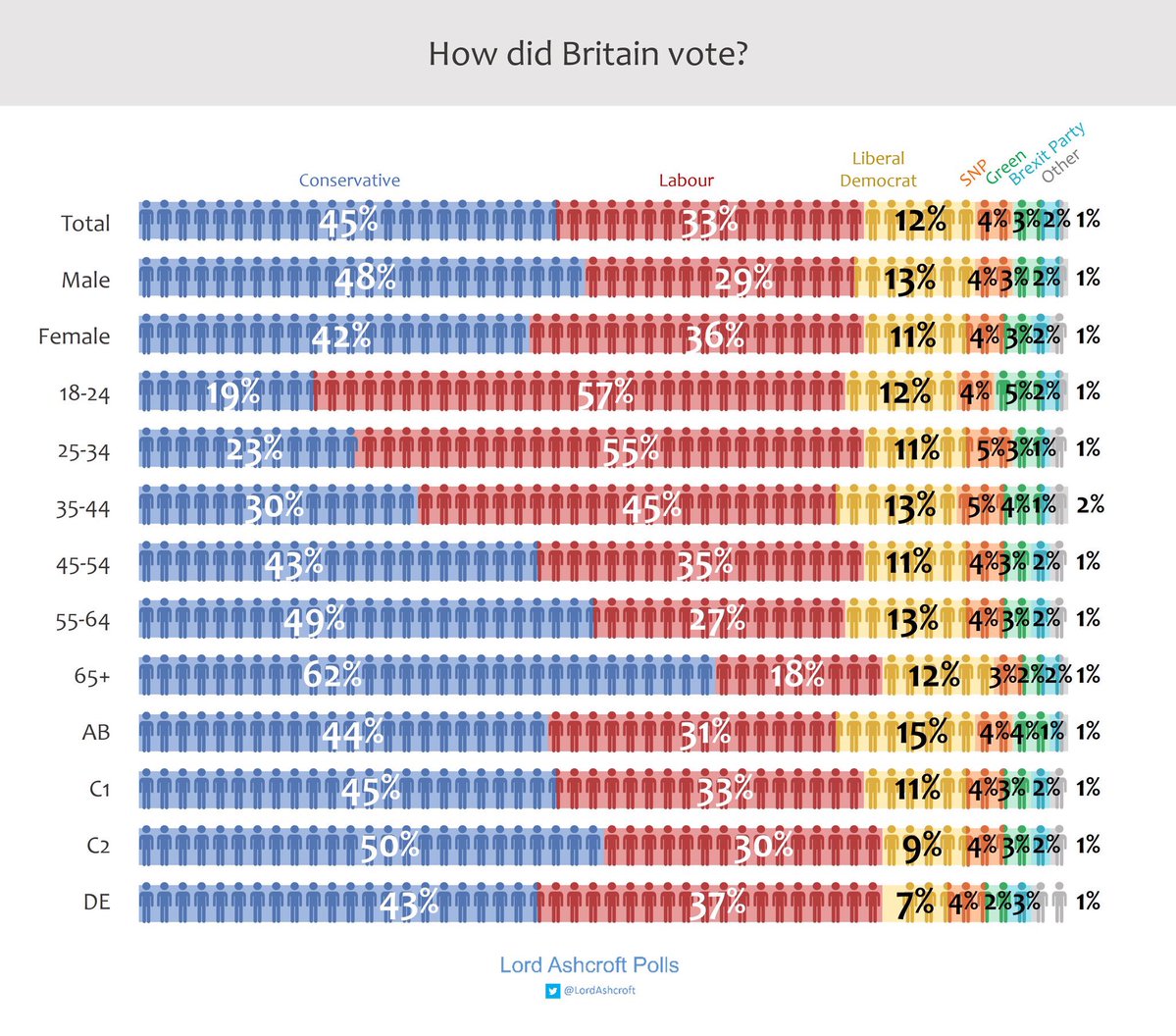
Young people voted Labour, old people voted Conservative. Only 18 percent of over 65 voters went for Labour. There is a trope that young people get more conservative as they get older, but that only happens if the system works for them. Since it doesn’t, and won’t, they will stay left-wing. This isn’t the end. But a lot of people will suffer and die because of this.
Labour got smashed in this election because their electorate was split and because of a full court propaganda campaign by the press, one which started the moment Corbyn was elected as Labour leader. Corbyn could have done some things better (in particular, I think he should have smashed those MPs who opposed him by supporting mandatory re-selection), but it’s not clear to me that some perfect Corbyn could have won this.
All of this is rather sad. In my lifetime, Corbyn has had the best policies of any major party leader in a Western country. There is no evidence that Corbyn’s policies were unpopular, they poll fine. The issue is that the election wasn’t fought on his policies, it was fought on Brexit and whether or not a man who spent his entire life fighting racism was a racist.
Fought on those grounds, Corbyn and Labour lost.
The price of this will be high. Johnson made a lot of promises, but the practical effect of his rule and his style of Brexit will be increased austerity and a continued sell-off of state services and properties. That’s what the Brits voted for, as a plurality, and they will get what they voted for.
Money would be rather useful, as I don’t get paid by the piece. If you want to support my writing, please DONATE or SUBSCRIBE.

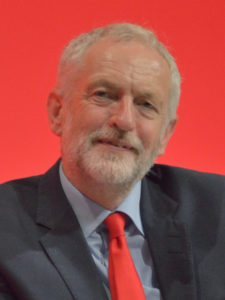

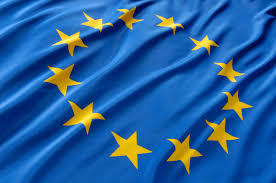 The bottom line here is that there was a referendum, and “leave” won.
The bottom line here is that there was a referendum, and “leave” won. They claim it’s due to anti-semitism and Corbyn’s approach to Brexit. (The anti-semitism charges are, to my mind, essentially bogus. There is no more anti-semitism in Labour today than under Blair—-unless, of course, one thinks that criticizing Israel is anti-semitic.)
They claim it’s due to anti-semitism and Corbyn’s approach to Brexit. (The anti-semitism charges are, to my mind, essentially bogus. There is no more anti-semitism in Labour today than under Blair—-unless, of course, one thinks that criticizing Israel is anti-semitic.)